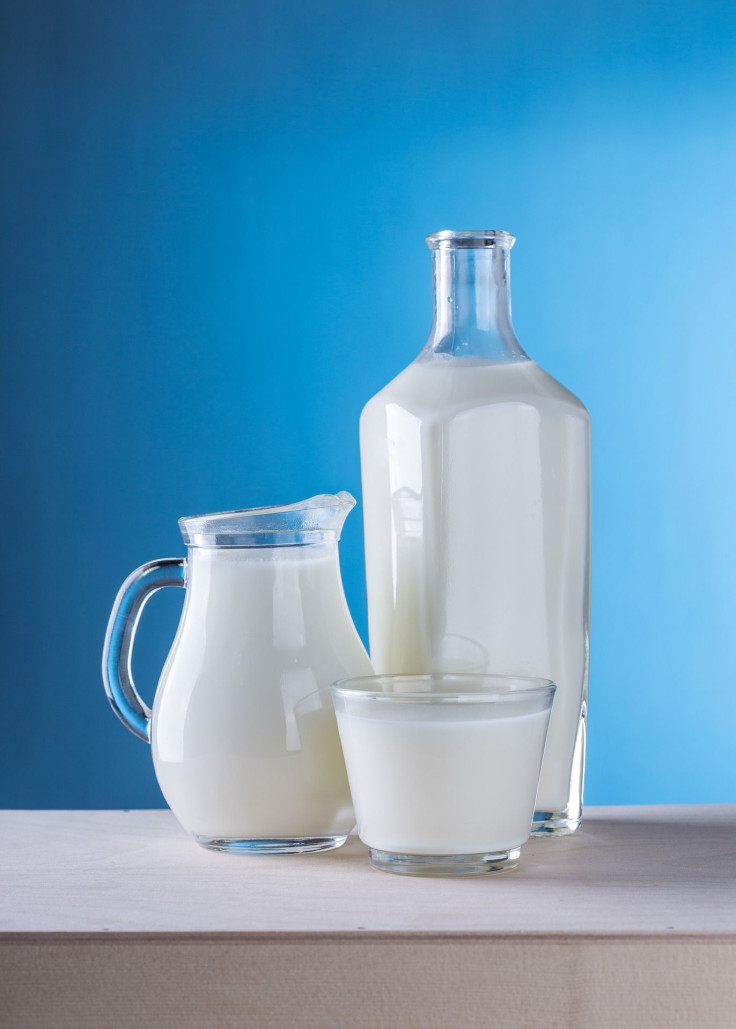A2 Milk Has Become Trendy, But Is It Actually Better?
You might think the latest trend in milk involves using yet another nut (are there any left unmilked?) to create a dairy-free alternative. Instead, the hype is all about a2 milk, a type of cow’s milk that doesn’t contain the A1 beta-casein protein.
Read: 4 Things I Learned About Milk And Cows After Visiting A Dairy Farm
What Makes A2 Different?
Normal cow’s milk contains both A1 and A2 variants of the beta-casein protein, one of the six produced by the CSN2 gene. Beta-casein proteins have a healthy balance of amino acids and are the second most prevalent found in the beverage. However, some believe that A1, which is only different from A2 by one slight amino acid variation, is harder to digest and can cause discomfort in people who are intolerant to milk.
The secret to making A2 milk is in the cows. Mother Jones reports that Holstein breeds, usually found in America and some European countries, contain both proteins, while animals from Asian, African and Jersey and Guernsey (from the Channel Islands) have predominantly A2.
Why Drink A2 Milk?
Enthusiasts believe that people who feel sick after drinking typical dairy milk will benefit from switching to A2. A small Chinese study found that people who drank A2 milk had less gastrointestinal inflammation and discomfort than those who drank milk containing both proteins. It’s important to note that the milk does contain lactose, so it is not necessarily recommended for those who are lactose intolerant. However, the Chinese study found that those who were intolerant actually found some relief in drinking A2 milk, which suggests that some of the unpleasantries associated with lactose intolerance may actually be related to the protein.

“...Consumption of milk containing both types was associated with greater worsening of gastrointestinal symptoms and gastrointestinal transit time in lactose intolerant subjects than in lactose tolerant subjects, whereas milk containing only A2 β-casein did not exacerbate these symptoms in lactose intolerant subjects,” the study authors write. “These results suggest that the exacerbation of gastrointestinal symptoms associated with milk in lactose intolerant subjects may be related to A1 β-casein rather than lactose per se.”
Read: A Daily Glass Of Cow's Milk May Make Kids Taller Than Drinking Non-Dairy Substitutes, Study Says
Others believe that A1 proteins are linked to increased cardiovascular problems, Type 1 diabetes, autism, and even schizophrenia, however, there is no scientific evidence to support these claims. As The Atlantic reports, few studies have been impartial, making many of the findings skewed.
More Than A Marketing Scheme?
Critics, (unsurprisingly, often from the dairy industry) believe A2 milk is nothing more than a clever ploy. The A2 Milk Company, the corporation behind the latest offering, was actually started in New Zealand 17 years ago. Their products can be found in Australia, New Zealand, China, the United Kingdom and the United States.
“Personally, the A2 Milk Company seems to be based primarily on marketing and playing to people’s fears,” Farmer Topher Sabot of Cricket Creek Farm, told The Atlantic. “Their milk appears to be a highly processed product that is not consistent with the local and fresh-food movement that I have experienced in the U.S.”
However, some farmers are getting on board the A2 milk train. Mother Jones explains that Ohio farmer Warren Taylor is one supporter who’s actually making the switch to A2 cows.
“People taste our milk and they say: ‘Oh my gosh, I haven’t tasted milk like this since I left home [and came to America],’” Taylor told the magazine.
But for now, the benefits of A2 milk remain debatable until further independent research is conducted.
See Also:
Dairy Isn't Deadly: New Study Says Diets High In Milk Products Don't Cause Heart Disease
Published by Medicaldaily.com



























